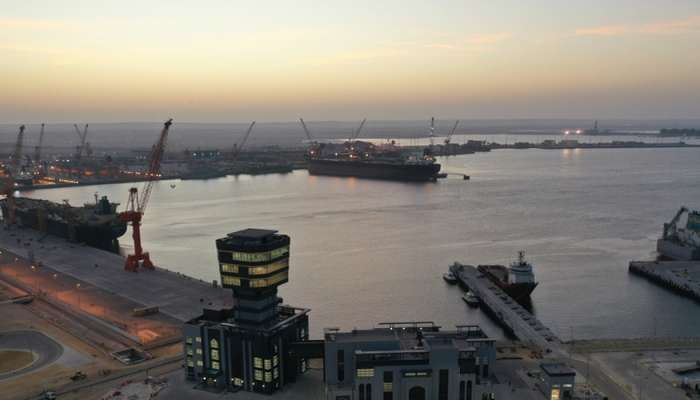The International Monetary Fund (IMF) recently concluded its preliminary meetings with the government of Oman as part of their Article IV consultations for 2024. The discussions focused on recent economic and financial developments, as well as economic prospects in the near and medium term. The IMF team highlighted the positive growth of economic activity in Oman, with real GDP growing by 1.3 percent in 2023, mainly due to expansion in non-oil activities. Economic growth is expected to remain moderate at 0.9 percent in 2024, but is projected to accelerate to 4.1 percent in 2025 as oil activities recover and restrictions on OPEC+ quotas are relaxed. Non-oil activities are also expected to accelerate in the coming years due to government reform plans and investment projects.
The IMF mission noted that ongoing reform efforts and favorable oil prices have improved public finance and external account balances. The fiscal balance recorded a surplus of 6.6 percent of GDP in 2023 and is expected to continue in the medium term supported by oil revenues, growing non-oil revenues, and financial control efforts. Public sector debt as a percentage of GDP decreased significantly to 36.5 percent in 2023, and State-owned enterprises debt stabilized at around 31 percent of GDP. The IMF praised Oman’s efforts in implementing the reform plan for State-owned enterprises, resulting in profitable sales operations in 2023.
In terms of the external balance, the current account balance showed a surplus of 1.4 percent of GDP in 2023 and is expected to remain in surplus in the medium term. Despite a reduction in leverage ratios in the public sector, total international reserves at the Central Bank of Oman reached $17.5 billion in 2023, with a significant increase in Foreign Direct Investment. The IMF mission commended the strength of Oman’s banking sector, highlighting high levels of bank capital, liquidity, profitability, and strong asset quality. It also noted that the net foreign assets of banks became positive for the first time since 2014 in December 2023.
The IMF emphasized the importance of structural reforms currently underway in Oman, including implementing social protection and labor laws, selling state-owned companies, reducing debt, and investing in climate-related initiatives to achieve renewable energy and green hydrogen targets. The government’s priorities include improving tax administration, simplifying financial expenditures, strengthening the financial framework, facilitating financing for SMEs, and accelerating digital transformation. These priorities align with Oman Vision 2040, which aims to foster a more comprehensive, sustainable, and knowledge-driven economy.
In conclusion, the IMF mission in Oman highlighted positive economic growth, improvements in public finance and external balances, and ongoing structural reforms. The government’s commitment to reform plans, investment projects, and fostering a more sustainable economy will be crucial in driving economic growth in the coming years. By continuing to implement the recommended priorities and reforms, Oman is well-positioned to achieve its economic objectives and enhance its overall economic resilience.










